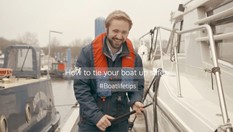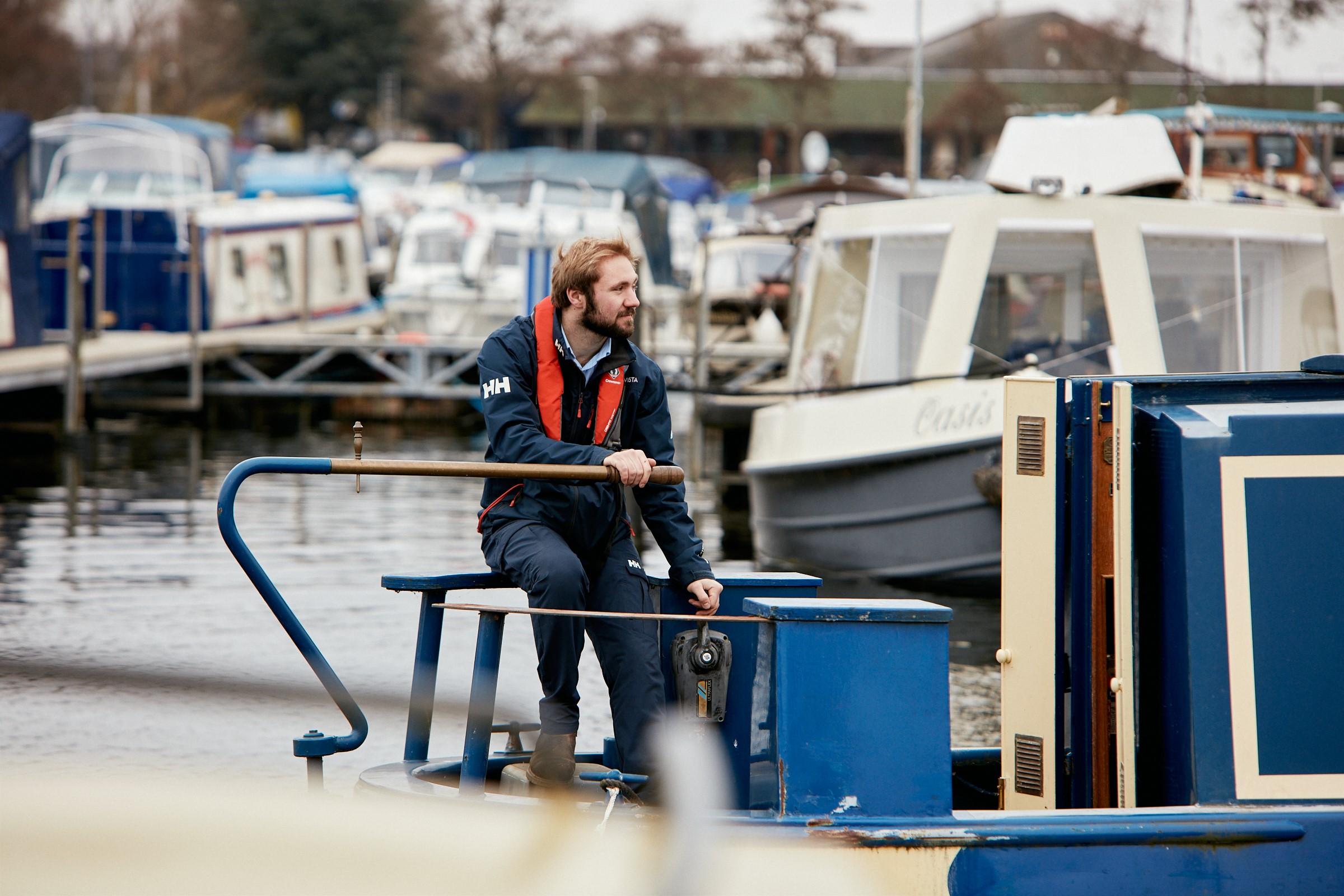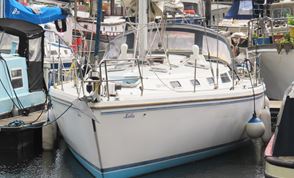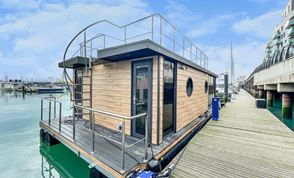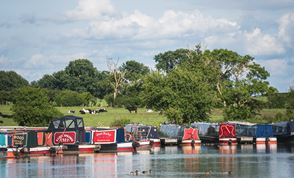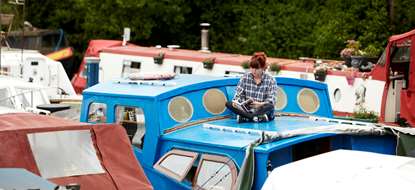12 Beginner Boating Tips for New Boaters
Boating along rivers and waterways is a fun and rewarding activity that people of all ages can enjoy, and it is an excellent way to travel around the country leisurely. There are plenty of interesting locations to visit and things to do. But for new boaters, there are some points that you need to know before embarking on your first river cruise or canal voyage that will ensure you stay safe and get the most from your boating experience.
Here are some beginner boating tips that will be useful while you are on the water for the first time.
- Choose the right boat
Different boats are suited to different waterways like lakes and rivers. The type of water you'll be boating on, your budget, and your planned activities will all affect your boat choice. A good beginner boating tip is to think about things like -
- Type of water you will be sailing on.
- Number of people you want to accommodate,
- Size and weight of the boat.
- Motorised or non-motorized watercraft.
Spend time researching the different boat types, and try renting before buying to see if the boat suits your needs.
- Invest in boating safety
Staying safe on the water is a top priority.
A boating course is a good idea for any beginner boater to learn how to operate the boat and understand safety procedures. A boating course will teach you the basic skills and knowledge you need and explain how to operate a boat safely. This might include -
- Boat handling
- Proper navigation techniques.
- Rules of different waterways.
- Emergency procedures.
Never attempt to operate a vessel while under the influence of drugs or alcohol.
- Pay attention to the weather
Many a boater has run into trouble because of the weather, so you must be aware of any unfavourable conditions before you head out on the water.
Be sure to check the weather forecast for your area and any area you plan to travel to. If the weather looks bad, it may be worth staying home, especially if you are new to boating. Avoid boating in stormy or windy conditions, as this can make the water rough and dangerous. Head back to shore immediately if you are unlucky enough to get caught in unexpected bad weather. Strong winds can make boat handling very challenging especially at slow speed which can make getting into your mooring very difficult.
- Verify safety equipment
Safety while aboard your boat is paramount, and one of the most important safety tips for boating beginners is always wearing a life jacket. Even if conditions seem calm, or you're a strong swimmer, accidents can happen, and wearing a life jacket can save your life. To keep passengers safe, everyone onboard the boat should be provided with a life jacket and wear it when they are outside of the cabin and especially when working a lock or mooring up. In addition to life jackets, there are other safety items you should have onboard your boat, such as -
- Life ring
- Throw bag
- Boat hook
- Fire extinguishers
- First aid kit
- Flares (offshore boating)
Ensure you check that all the necessary safety equipment is in place before heading out onto the water.
- Check boat capacity
All boats have a maximum limit of weight and passenger capacity that should not be exceeded. While it may not seem like a big deal, going over the boat's capacity will make it unstable, harder to manoeuvre, and increase the risk of capsizing. Check your boat's capacity limits before heading out and ensure your vessel is not overloaded.
- Practice handling your boat
One of the best ways beginner boaters can become familiar with the operation and manoeuvring of their vessel is by practising. Before you take any boat out on the water, practice steering and driving it in a safe, open area. This will give new boaters a feel for how it handles and learn how to control the boat at different speeds and conditions. This will help beginner boaters to feel more confident on the water.
- Abide by waterway rules
Part of staying safe is following the rules and boating regulations. There are rules and regulations on the waterway that boaters are expected to follow. These rules are in place to ensure that everyone remains safe and that boating is an enjoyable experience for everybody. You should learn the rules and be familiar with things such as right-of-way and speed limits before going out on your boat.
- Respect the environment
As a responsible boater, it's important to respect the environment and follow best practices for protecting it. Help keep the waterways, towpaths, and banksides clean by properly disposing of waste. Never throw rubbish overboard, be mindful of wildlife, and avoid disturbing natural habitats. If there are local regulations or waterway rules, make sure to stick to them.
- Perform regular maintenance
Keep your boat running in top conditions by performing regular maintenance. For boating beginners, this is key to keeping your boat in good working condition and avoiding breakdowns on the water. Regularly check the levels of -
- Oil.
- Fuel.
- Water and other fluids.
- Stern gland greasing
- Keep your bilges dry (disposing of contaminated water responsibly)
Make sure your boat's mechanical and electrical systems are working properly and that routine maintenance is performed on a schedule to prevent problems.
- Monitor fuel range
For beginner boaters, this is a simple tip, but it’s one that can prevent you from getting stranded while far away from shore or a fuel berth. Ensure you know your boat's fuel range so you don't run out unexpectedly. Monitor and check your fuel consumption regularly and know how much fuel you will need for your trip. If you have an appropriate container, extra fuel can be carried onboard in case of any emergencies. If you have diesel heating this can reduce your range especially in the colder months.
- Learn how to anchor
If your boat has an anchor, you should know how to use it properly. Anchoring can be tricky for beginner boaters, but it's an essential skill. Make sure you have the right anchor suitable for the places you'll be stopping, and know how to lower your anchor and set it correctly to hold your boat in place.
- Create a passage plan
A passage plan is a document used to outline your boating trip. It includes details about your destination, departure and estimated return times. A copy of your passage plan should be left with someone on shore. If there are any issues, someone will know where you are and when you should return. This information is a great precaution, especially for beginner boaters, and will help rescue services locate you in an emergency.
Final words
This list of tips for beginner boaters is designed to keep you safe when sailing the country’s canals, cruising along rivers, or even navigating the open ocean. While boating can be a new and exciting experience, it is important to be aware of problems and know how to handle them. A bit of preparation and awareness will help new boaters manage any issues or avoid them altogether and ensure you can completely enjoy your boating experience.


